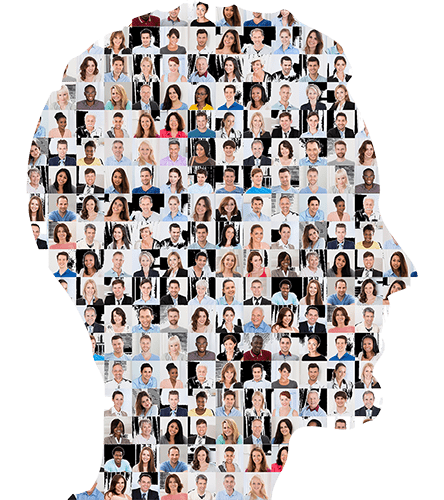
VIRTUAL SYMPOSIUM
Inter- and Intra- person Variability in the Human Brain
November 4-6, 2019
The human brain develops in an experience dependent manner and changes across the lifespan leading to a vast diversity of brain physiology and function. This symposium will bring together researchersto explore both inter-person and intra-person differences in the brain. The talks will cover a range of approaches from various imaging techniques used to measure dynamical or structural aspects of the brain to readouts of cognitive and behavioral outcomes. The primary common theme will be that they explore the differences and variability and the implications for brain health and behavior.
The conference will be organized into sessions around three broad themes.
- Changes in the Brain Across the Lifespan
From birth to adolescence to aging the brain undergoes an array of changes. What are these and what are their implications? - Population Differences in the Human Brain
Culture, occupations and lifestyles differ across large population groups. How do these differences impact brain physiology?w - Relationships between Brain Physiology and Cognition and Behavior
How do differences in brain physiology among individuals relate to differences in cognition and behavior?
FORMAT
The symposium will be held online and sessions will include three theme based talks of30 mins in length including time for questions followed by a short moderated panel. A link with login information for access to the online symposium along with access instructions will be shared with registered participants a week prior to the symposium.
REGISTRATION
Registration will open on August 1 at which time more information will become available on conference program and speakers. We charge a nominal of fee of $5 for students and $10 for faculty in order to cover the costs of hosting the symposium. However, we do have up to 150 free spots for students and faculty in Asia and Africa where there may be legitimate challenges with resources or ability to make international credit card payments. For a free spot, please email symposiums@sapienlabs.org with brief information on your organization and circumstance.
Please note that this is a partial list of speakers. We are continuing to confirm speakers, so please check back for updates.
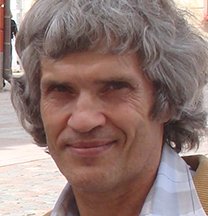
Dr. Gennady Knyazev
Laboratory Head, Institute of Physiology and Basic Medicine, Novosibirsk Russia
Dr. Knyazev’s research focuses on the psychophysiology of individual differences, in particular using various approaches to EEG data analysis to understand the relationship between intrinsic connectivity networks and various aspects of human personality and perception. In particular he has looked at correlates of aggression and differences between cultures.
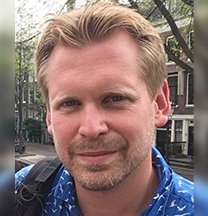
Dr. Rogier Kievit
Group leader, Lifespan Cognitive Dynamics group, Cambridge University
In the Lifespan Cognitive Dynamics lab at the MRC Cognition and Brain Sciences Unit we are interested how, and why, cognitive abilities change across the lifespan. We are especially interested in changes, and differences, in fluid abilities such as abstract reasoning. To study these questions we use a range of multivariate methods in large samples to examine how cognitive abilities affect each other, how brain structure and function supports changes in cognitive abilities, and how cognitive functioning interfaces with lifestyle factors such as physical and mental health, social and intellectual engagement and environmental factors.
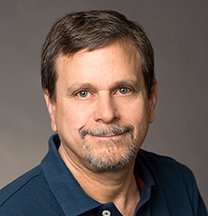
Dr. Michael Webster
Foundation Professor, Center for Integrative Neuroscience, University of Nevada, Reno
Dr. Webster is a vision scientist who studies the cognitive and neural processes that underlie how we see and perceive the world and how our perception adapts to properties of the environment or properties of the observer. He has discovered a number of novel and influential forms of adaptation, affecting how we see colors, how we correct for blurry vision, and how we perceive faces, and has carried out extensive studies of individual differences in color vision and perception and their implications for sensory processing.
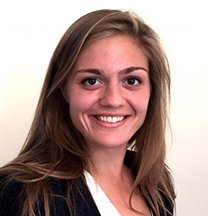
Dr. Chelsea Stillman
Senior Research Associate, Brain Aging and Cognition Lab, University of Pittsburgh
Dr. Stillman is a senior research associate in the lab of Dr. Kirk Erickson where she works on the impact of diet and exercise on the brain and on how lifestyle interventions, such as physical activity, can be best implemented in populations at increased risk for cognitive decline. She is also assisting with the execution of the IGNITE project, a multi-site clinical trial of exercise on neurocognitive health.
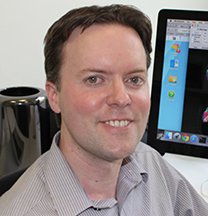
Dr. Michael W. Cole
Associate Professor, Center for Molecular and Behavioral Neuroscience, Rutgers University
Dr. Cole’s research focus is on understanding the cognitive and neural basis of flexible and goal-directed behavior by applying network science, computational modeling, and machine learning approaches to various imaging data including fMRI, MEG, EEG, diffusion MRI, and behavioral measures. Of particular interest is how cognition emerges from network interactions, and how these processes are common versus differentiated among individuals.
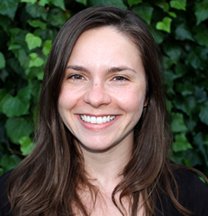
Dr. Kate Mills
Assistant Professor, Department of Psychology, University of Oregon
Dr. Mills’ lab investigates how the demands of a child’s social environment affects the development of cognitive and behavioral strategies and the relationship of these strategies to development of the brain. Her research studies these intertwined social, biological, and cognitive processes by integrating social network analysis with behavioral assessments, social environment measures and neuroimaging and is particularly focused on childhood and the transition to adolescence.
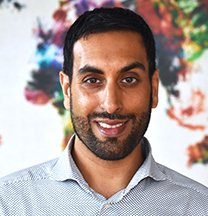
Dr. Gagan Wig
Associate Professor, Center for Vital Longevity, School of Behavioral and Brain Sciences, University of Texas at Dallas
Dr. Wig’s work is focused on understanding healthy and pathological aging with a particular focus on analysis of brain connectivity and brain networks using fMRI. His work has begun to reveal how brain networks differ across the adult lifespan, and how individual differences in brain network organization relate to cognitive ability. Dr. Wig’s work also looks at the impact of environment and in particular, socioeconomic environment on the aging of brain networks.

Dr. Donna Roberts
Associate Professor, Dept of Radiology and Radiological Science, Medical University of South Carolina
Dr. Roberts is a clinical and research neuroradiologist. Following previous positions at NASA, her present research work focuses on the impact of space flight on the human brain. In particular she studies the impact of microgravity environments on brain structure and function.
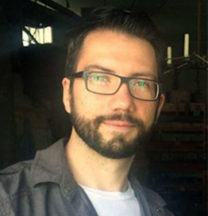
Dr. Vladimir Miskovic
Assistant Professor, Dept of Psychology, Binghamton University, State University of New York
Dr. Miskovic’s research studies the interplay of emotion, attention and motivation. His lab uses electrophysiological and behavioral methods to examine the ways in which human perceptual systems tune to basic affective properties in order to selectively focus attention. He has also studied the changes in cortical activity across development.
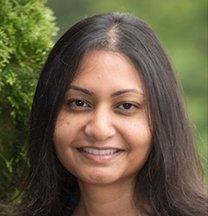
Dr. Lucina Uddin
Associate Professor, Department of Psychology, University of Miami
Dr. Uddin’s research is broadly focused on investigating the relationship between brain connectivity and high-level cognitive processes in typical and atypical development using magnetic resonance imaging. Current projects focus on understanding brain network dynamics and cognitive flexibility in neurodevelopmental disorders such as autism and individual differences in executive function ability.

Dr. Xiaoping Hu
Professor and Chair, Dept. of Bioengineering, University of California, Riverside
Dr. Hu has worked on the development and biomedical application of magnetic resonance imaging for 4 decades. His work has involved bringing multiple novel methods and techniques to the field for analysis of MRI data as well as shed light on various aspects of brain connectivity related to normal conditions and brain disorders.
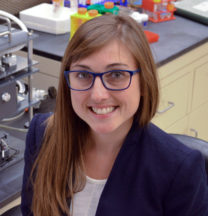
Dr. Casey Trimmer
Scientist, Firmenich
Dr. Trimmer’s research employs next-generation sequencing technology to identify how odor is transduced into perceptual characteristics, or in other words, how variations in the genetic code influence people’s sense of smell. Her research has demonstrated that genetic variations in olfactory receptors, particularly the common natural occurrence of loss of function of an individual olfactory receptor, correlates with changes in the perceived intensity and pleasantness of odors.
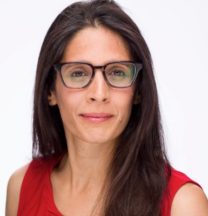
Dr. Tara Thiagarajan
Founder & Chief Scientist of Sapien Labs
Dr. Tara Thiagarajan is the Founder & Chief Scientist of Sapien Labs. Her interest broadly lies in understanding the diversity of human brain physiology and its relationship to environment and in turn to cognitive and behavioral outcome. She is particularly focused on EEG and has worked on new analytical approaches to brain signals (LFP, ECoG and EEG) and developing new metrics.
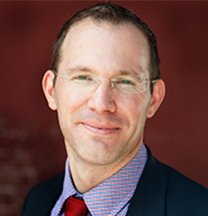
Dr. John Sullivan
Sports Scientist and Clinical Sport Psychologist
Dr. Sullivan is a Sports Scientist and Clinical Sport Psychologist with over twenty years of both research and clinical experience working within the NFL, the NCAA, tactical, and aerospace environments focused on health and human performance. His research explores aspects of brain health and high performance in elite athletes with a particular emphasis on the neurophysiology, psychophysiology, and physiological management and human resilience.
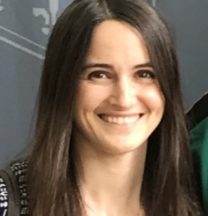
Dr. Emily Finn
Postdoctoral Fellow, National Institute of Mental Health
Dr. Finn’s research interest lies in understanding what makes us unique and how our intrinsic traits are reflected in brain activity. She uses fMRI to study individual differences in brain activity and connectivity and how these relate to behavior. Specifically, she is investigating how naturalistic task paradigms may be used to draw out individual variation of interest, in both healthy people and those with or at risk for psychiatric illness.
Inter- and Intra-Person Variability in the Human Brain Virtual Symposium Program Schedule
Monday, November 4, 2019
| 10:00 – 10:15 am: | Welcome & Conference Introduction | |
| 10:15am – 12:15 pm: | Changes in the Brain Across the Lifespan | |
| 10:15am – 10:45am | The Development of Intrinsic Cortical Dr. Vladimir Miskovic, Assistant Professor, Dept of Psychology, Binghamton University, State University of New York |
|
| 10:45am – 11:15am | Parcellation of Brain Networks and Aging Dr. Gagan Wig, Associate Professor, Center for Vital Longevity, School of Behavioral and Brain Sciences, University of Texas at Dallas |
|
| 11:15am – 11:45am | Individual Differences in Human Brain Development Dr. Kate Mills, Assistant Professor, Department of Psychology, University of Oregon |
|
| 11:45am – 12:15pm | Open Q&A | |
| 12:15 pm – 1:00pm | Break | |
| 1:00 – 3:00pm: | Individual Brain Networks and Behavior | |
| 1:00pm – 1:30pm | Relating Individual Differences in Brain Organization and Connectivity to Behavior Dr. Emily Finn, Postdoctoral Fellow, Laboratory of Brain and Cognition, National Institute of Mental Health |
|
| 1:30am – 2:00pm | Fingerprinting of Individual Brain Networks Dr. Xiaopin Hu, Professor and Chair, Dept. of Bioengineering, University of California, Riverside |
|
| 2:00pm – 2:30pm | Fluid intelligence across the lifespan: Brains and behaviour Dr. Rogier Kievit, Group leader, Lifespan Cognitive Dynamics group, Cambridge University |
|
| 2:30pm – 3:00pm | Open Q&A |
Tuesday, November 5
| 8:30am – 8:45am: | Welcome & Conference Introduction | |
| 8:45am – 10:30am: | Brain Physiology and Cognition | |
| 8:45am – 9:15am: | Cultural Values Modulate EEG Correlates of Self-Processing Dr. Gennady Knyazev, Laboratory Head, Institute of Physiology and Basic Medicine, Novosibirsk Russia |
|
| 9:15am – 9:45am | Heterogeneity of Cognitive Flexibility Dr. Lucina Uddin, Associate Professor, Department of Psychology, University of Miami |
|
| 9:45am – 10:15am | From Connectome to Cognition Dr. Michael Cole, Associate Professor, Center for Molecular and Behavioral Neuroscience, Rutgers University |
|
| 10:15am – 10:30am | Open Q&A | |
| 10:30am – 11:00am: | Break | |
| 11:00am – 1:00pm: | Individual Differences from Perception to Performance | |
| 11:00am – 11:30am | CNS Readiness and its Relationship to High Performance Under Pressure Dr. John Sullivan, Sport Scientist and Clinical Sport Psychologist |
|
| 11:30am – 12:00pm | Natural Variations in Olfactory Receptors Shape Odor Perception Dr. Casey Trimmer, Scientist, Firmenich |
|
| 12:00pm – 12:30pm | Adaptation and Individual Differences in Visual Perception Dr. Michael Webster, Foundation Professor, Center for Integrative Neuroscience, University of Nevada, Reno |
|
| 12:30pm – 1:00pm | Open Q&A |
Wednesday, November 6
| 10:15am-10:45am | Tutorial: Analysis and Representation of Individual Differences in Data | |
| 10:45am-11:00am | Break | |
| 11:00am – 1:00pm | How Environment Shapes the Human Brain | |
| 11:00am – 11:30am: | How Cell Phones Have Shaped Brain Physiology Dr. Tara Thiagarajan, Founder & Chief Scientist, Sapien Labs |
|
| 11:30am – 12:00am | The Impact of Exercise and Lifestyle on Human Brain Structure and Function Dr. Chelsea Stillman, Senior Research Associate, Brain Aging and Cognition Lab, University of Pittsburgh |
|
| 12:00pm – 12:30pm | The Human Brain and Space Travel Dr. Donna Roberts, Associate Professor, Dept of Radiology and Radiological Science, Medical University of South Carolina |
|
| 12:30pm – 1:00 pm | Open Q&A | |
| 1:00pm – 1:15pm: | Concluding remarks |
